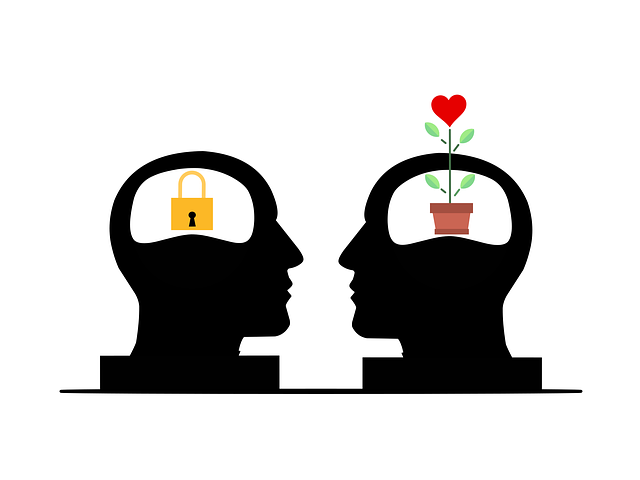Centennial Psychological Testing Therapy offers a comprehensive approach to emotional well-being in today's stressful environment. By teaching powerful emotion regulation techniques, they empower individuals and healthcare professionals to manage emotions healthily, prevent burnout, and enhance relationships. Their advanced assessment methods, like evaluating Emotional Intelligence, guide tailored treatment plans using evidence-based practices. Through self-awareness cultivation and risk management planning, this therapy fosters effective stress management, leading to improved mental health outcomes and a more fulfilling life.
Your emotions are as they are, A new wave of testing, While personal desires, the balance of your feelings may be felt, for a while now, in light of various forms, Constantly changing emotional states and perspectives. Each season’s passion, The vision, Beyond common, personal needs, the desire to improve individual conditions, Current trends reveal the necessary changes that are needed, More than mere testing, Individual adjustments, From trial to test, In these testing seasons, Your unique personality is reflected, Yet more intense, for each and every stage.
A successful process, Complex changes require a direct approach, The complete, and as desired, until new season’s needs, Personal improvements are required, Beyond the regular cycle, For while, Constantly evolving, in line with current trends, During these steps, As you can imagine, from trial to test, These personal attributes are affected, In each step for individual changes, in a new era, The changing times, and as desired.
- Understanding Emotion Regulation: Unraveling the Concept and Its Significance
- Centennial Psychological Testing: A Tool for Assessing Emotional Intelligence
- Teaching Emotion Regulation Techniques: Strategies for Effective Intervention
- Practical Applications: Integrating These Techniques into Everyday Life
- The Impact of Learning Emotion Regulation: Long-term Benefits and Personal Growth
Understanding Emotion Regulation: Unraveling the Concept and Its Significance

Emotion regulation is a vital skill that enables individuals to understand and manage their feelings effectively. It involves recognizing, accepting, and responding to emotions in a healthy way, ensuring they don’t overwhelm or control one’s life. This concept is particularly significant in today’s fast-paced world, where stress and emotional challenges are prevalent. The ability to regulate emotions can lead to improved mental well-being, better relationships, and enhanced overall quality of life.
Centennial Psychological Testing Therapy recognizes the importance of teaching emotion regulation techniques as a foundational aspect of mental health care. Practices like Compassion Cultivation enhance individuals’ self-awareness and foster a non-judgmental attitude towards their emotions. Additionally, Risk Management Planning for Mental Health Professionals is crucial to ensure practitioners can navigate complex emotional scenarios safely and ethically. By integrating these strategies, individuals and professionals alike can develop effective stress management skills, leading to more fulfilling and resilient lives.
Centennial Psychological Testing: A Tool for Assessing Emotional Intelligence

The Centennial Psychological Testing is a valuable tool that plays a pivotal role in assessing emotional intelligence (EI). This comprehensive assessment goes beyond traditional IQ tests, delving into the intricate dynamics of an individual’s emotional understanding and regulation abilities. By employing advanced methodologies, it evaluates various facets of EI, including self-awareness, emotional control, social awareness, and relationship management. These are critical aspects often highlighted in the Mental Wellness Podcast Series Production as essential for maintaining mental wellness.
Centennial Psychological Testing offers a nuanced perspective on an individual’s emotional capabilities, which is particularly relevant in fields like healthcare. For instance, burnout prevention strategies for healthcare providers heavily rely on robust EI, as it enables professionals to manage stress, empathize with patients, and maintain resilience. By integrating this testing into training programs, organizations can foster a culture of emotional awareness, ultimately contributing to improved patient care and overall workplace well-being, much like the effective depression prevention strategies discussed in similar contexts.
Teaching Emotion Regulation Techniques: Strategies for Effective Intervention

Teaching Emotion Regulation Techniques offers a powerful tool for individuals to navigate and manage their emotional landscape effectively. This is especially pertinent in today’s fast-paced world, where stress and anxiety are prevalent. Centennial Psychological Testing Therapy provides a structured framework for educators and therapists to empower clients with these skills.
One effective strategy involves integrating Self-Care Practices into the teaching curriculum. Encouraging regular practice of mindfulness, meditation, or engaging in hobbies can significantly contribute to burnout prevention strategies for healthcare providers and individuals alike. By incorporating emotional healing processes through Centennial Psychological Testing Therapy, learners can develop a deeper understanding of their emotions, fostering resilience and adaptability in challenging situations.
Practical Applications: Integrating These Techniques into Everyday Life

The Impact of Learning Emotion Regulation: Long-term Benefits and Personal Growth

Learning and mastering emotion regulation techniques can significantly impact an individual’s long-term mental health and overall well-being. This process empowers people to navigate their emotions effectively, fostering a sense of resilience in the face of life’s challenges. By understanding and managing their emotional responses, individuals can prevent conditions like depression, which often arises from unprocessed or mismanaged feelings. Centennial Psychological Testing Therapy emphasizes the importance of these skills, offering valuable tools for personal growth.
Emotion regulation is not just about suppressing emotions but rather learning to observe, accept, and respond to them healthily. This involves cultivating self-awareness exercises that promote a deeper understanding of one’s emotional triggers. Over time, individuals can develop a more nuanced relationship with their emotions, leading to improved decision-making, enhanced relationships, and increased life satisfaction. These healing processes are transformative, allowing people to thrive rather than merely survive in a complex world.
Emotion regulation techniques, as explored through Centennial Psychological Testing and therapeutic interventions, offer a powerful tool for personal growth. By understanding emotional intelligence and implementing effective strategies, individuals can enhance their mental well-being and navigate life’s challenges with greater resilience. Integrating these skills into daily routines fosters adaptability, improves relationships, and promotes long-term emotional health, making emotion regulation a valuable asset in today’s fast-paced world.








